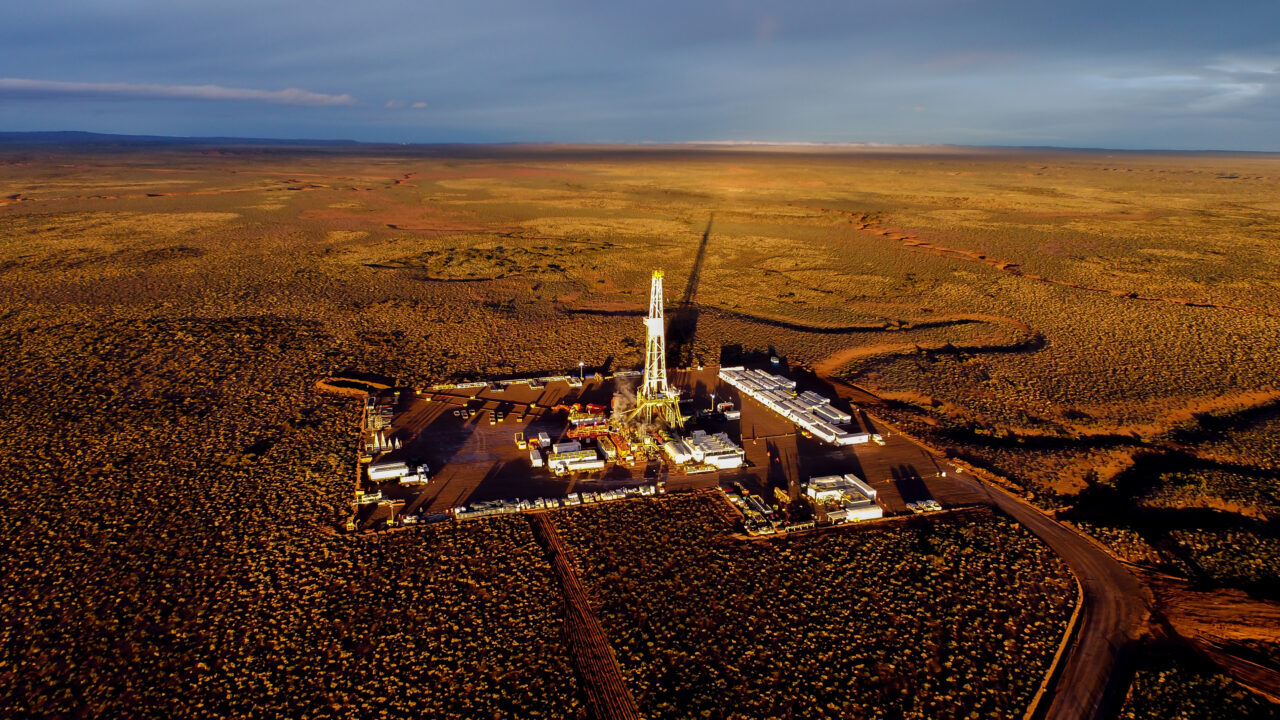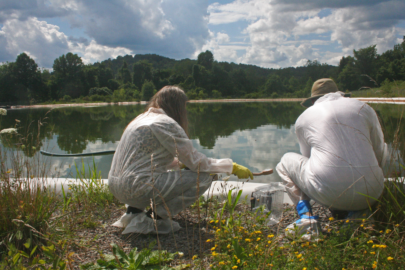‘Damning Evidence’ Mounts That Links Fracking to Health Impacts
Despite thousands of papers compiled that outline the hazards of fracking to the greater population, fossil fuel groups continue to deny the facts. Image: Adobe
Image: Adobe
As public health experts compile thousands of papers with “damning evidence” linking fracking with health harms, fossil fuel groups are working to undermine the research by arguing that not all of it is peer-reviewed.
“The ninth edition of a ‘compendium’ of scientific, medical, government, and media reports on the industry’s health effects, contains references to almost 2,500 papers that add to evidence that fracking has an array of negative impacts on human health,” writes Inside Climate News.
Newer studies corroborate older research and reveal the same conclusions wherever fracking is practiced in the United States, said lead author Dr. Sandra Steingraber, a member of Physicians for Social Responsibility and Concerned Health Professionals of New York, which jointly published the document. “The fact that there is lots of new data that supports the older data means that the case against fracking is ever more damning.”
Hydraulic fracturing, better known as fracking, has been linked to an array of health harms for residents near extraction sites, including cancer, cardiovascular disease, asthma, and birth defects—but it is also the process that contributed to the ‘Shale Revolution’ that helped the U.S. increase its oil and gas output after the 2008 recession.
This dichotomy—of fracking as an economic generator and the cause of devastating health outcomes—has been at the centre of a multi-decade information battle between its proponents and opponents, over research about its negative health impacts. The latest dispute centres on a 635-page compendium of scientific, medical, and media findings on the risks and harms of fracking and associated oil and gas infrastructure.
The public access document draws information from three kinds of sources: articles from peer-reviewed medical and scientific journals, investigative reports by journalists, and reports from government agencies. It has a searchable citation database of 2,303 peer-reviewed studies pertaining to shale and tight gas development. It is now in its ninth edition since it was first published in 2014, with the number of collected sources now six times that of the first editions.
Many of the studies are based in Pennsylvania, where more gas is produced from fracking than in any other U.S. state, except Texas. That level of production, coupled with a relatively high population of 12 million people, allows more opportunities for researchers to study fracking’s effects on public health. But findings from other states are also included, corroborating the evidence. Studies in both Colorado and Pennsylvania, for example, show high rates of leukemia among children living near fracking sites compared to those living in other locations.
More than 200 studies found that U.S. groundwater is being contaminated by some two billion gallons of process water each day, forced underground at high pressure during fracking or injected into some 187,000 disposal wells filled with toxic fracking waste. This provides “irrefutable evidence that groundwater contamination has occurred as a result of fracking activities and is more likely to occur close to well pads,” says the compendium.
But groups like the Marcellus Shale Coalition, a natural gas industry trade group, have dismissed the compendium as “junk science,” arguing that half the documents are not peer-reviewed and nor are the news stories, writes Inside Climate.
“The fact that there is lots of new data that supports the older data means that the case against fracking is ever more damning.”
“While our industry supports comprehensive, objective, and rigorous peer-reviewed research, it’s important to recognize that the compendium primarily relies on quantity rather than quality,” said Stephanie Catarino Wissman, executive director of the Pennsylvania branch of the American Petroleum Institute, the oil and gas industry’s leading lobby group. “This overreliance on media reports can lead to an inflation of the study count, ultimately resulting in misleading statistics.”
Steingraber dismissed this criticism, pointing out that investigative journalism can offer freedom-of-information findings that are unavailable to scientists. And government reports, which are also not peer-reviewed, provide important, verified information.
“Investigative reporting helps us scientists break through the secrecy of this industry, which enjoys many legal exemptions from our federal statutes,” Steingraber said.
The compendium notes the U.S. has no federal policies or legislation to compel a winding down of fossil fuel projects in accordance with country’s net-zero commitments. In fact, new carbon capture and storage incentives in the 2022 Inflation Reduction Act offer financial rewards for injecting carbon dioxide underground—even if it’s for use in extracting more oil and gas—which makes the tax credits a long-term subsidy for the industry.
“The rapidly expanding body of evidence compiled here is massive, troubling, and cries out for decisive action,” say the report authors. Fracking must be countered by a complete and comprehensive ban as the only way to reduce the threats to public health. And “indeed, a fracking phaseout is a requirement of any meaningful plan to prevent catastrophic climate change.”
Your support matters…Independent journalism is under threat and overshadowed by heavily funded mainstream media.
You can help level the playing field. Become a member.
Your tax-deductible contribution keeps us digging beneath the headlines to give you thought-provoking, investigative reporting and analysis that unearths what's really happening- without compromise.
Give today to support our courageous, independent journalists.

You need to be a supporter to comment.
There are currently no responses to this article.
Be the first to respond.